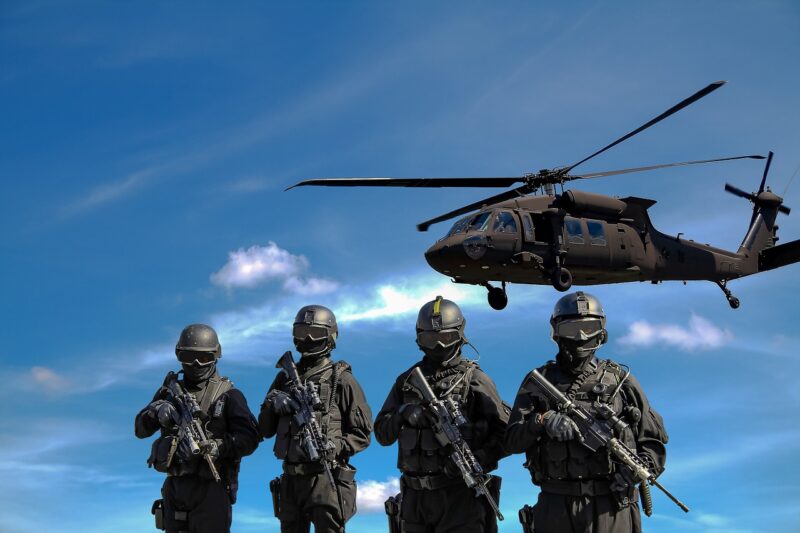International Police Collaborations: How Countries Work Together to Combat Crime
November 13, 2024

In an increasingly interconnected world, crime knows no borders. Whether it be drug trafficking, human smuggling, cybercrime, or terrorism, criminals exploit international boundaries to their advantage. As a result, effective law enforcement requires more than just local jurisdiction; it necessitates international cooperation. This article explores how countries collaborate through various police organizations, treaties, and joint operations to tackle crime on a global scale.
1. Understanding International Policing
International policing refers to efforts by law enforcement agencies across different countries to share information, coordinate operations, and collaborate to combat transnational crime. The challenges of policing on a global scale are underscored by the different legal systems, languages, and cultural norms that exist worldwide. Countries have realized that no single nation can effectively combat transnational crime alone, leading to the establishment of various international policing mechanisms.
1.1 The Need for Collaboration
As modern criminals become more sophisticated, law enforcement agencies must adapt and work together to combat these evolving threats. Some key factors that drive the need for international collaboration include:
- Globalization: The ease of travel and the internet allows criminals to operate internationally with relative ease, necessitating a collaborative approach to law enforcement.
- Resource Sharing: Many countries, particularly developing nations, may lack the resources, technology, or expertise necessary to combat certain types of crime effectively.
- Joint Operational Strategies: Criminal organizations often have operational networks that span multiple countries, requiring a coordinated response to dismantle them effectively.
2. Key International Law Enforcement Organizations
Several organizations facilitate international police collaborations, each with its unique focus and operational methodologies. Here, we explore some of the most prominent entities:
2.1 INTERPOL
Founded in 1923, INTERPOL (the International Criminal Police Organization) is perhaps the most recognized international policing entity. With 195 member countries, INTERPOL works to promote international cooperation among law enforcement agencies.
Some of its key functions include:
- Information Sharing: INTERPOL provides a secure communication platform for member countries to share criminal information, reports, and data in real-time.
- Notices System: INTERPOL issues different types of notices (like Red Notices for wanted persons) to alert member countries about threats or criminals.
- Capacity Building: INTERPOL offers training programs and technical assistance to enhance the capabilities of law enforcement agencies in member countries.
2.2 Europol
The European Union’s agency for law enforcement cooperation, Europol, works closely with EU member states to combat serious international crime and terrorism. Established in 1995, Europol’s functions include:
- Operational Support: Europol provides analysis and intelligence support for ongoing investigations, enabling member states to coordinate their efforts.
- Cross-Border Operations: Facilitating joint investigations and operations in response to shared threats, such as drug trafficking and organized crime.
- Cybercrime Tracking: Europol has units dedicated to tackling cybercrime, including the European Cybercrime Centre (EC3).
2.3 UNODC
The United Nations Office on Drugs and Crime (UNODC) supports international collaboration in combating drug-related crime and organized crime. It provides research, analytical, and capacity-building support to member states. Key initiatives include:
- Global Drug Control Strategies: UNODC develops international drug control policies that countries can adopt to combat drug trafficking.
- Supporting National Legislation: Assisting countries in implementing legislation aligned with international drug control treaties.
- Training Law Enforcement Agencies: Providing training and technical assistance to develop skills in law enforcement agencies worldwide.
3. Legal Frameworks Supporting Collaboration
International police collaboration is underscored by various treaties and agreements that outline the legal framework for cooperation. Some notable frameworks include:
3.1 Mutual Legal Assistance Treaties (MLATs)
MLATs are agreements between two or more countries for the purpose of gathering and exchanging information in an effort to enforce public laws or criminal laws. These treaties facilitate the process for one country to request assistance from another in criminal matters, such as evidence gathering and witness testimony.
3.2 Extradition Treaties
Extradition treaties are agreements that allow one nation to surrender a suspected or convicted criminal to another nation. Extradition is a critical aspect of international policing, as it enables countries to bring criminals to justice, regardless of where they might escape.
4. Joint Operations: Real-World Examples
The success of international police collaboration is often demonstrated through various joint operations that have taken place globally. These operations showcase the ability of law enforcement agencies to work together effectively.
4.1 Operation Archimedes
In 2019, Operation Archimedes was launched by INTERPOL in coordination with member countries to combat organized crime and human trafficking. This operation involved simultaneous raids across multiple countries, resulting in hundreds of arrests and the dismantling of human trafficking networks across Europe and beyond.
4.2 Operation Pangea
Operation Pangea is an annual operation that targets online pharmaceutical crime. Launched in 2008, this joint effort involves law enforcement agencies and online marketplaces to crack down on the illicit sales of counterfeit and unregulated medicines, leading to numerous arrests and the seizure of illegal drugs.
5. Challenges to International Police Collaboration
Despite the advantages of collaboration, several challenges hinder international police partnerships:
- Differences in Legal Systems: Diverging laws and procedures across countries can complicate cooperation and hinder extradition and information sharing.
- Political Considerations: Some nations may be hesitant to work together due to political differences or historical tensions.
- Resource Limitations: Smaller nations may lack the resources or technical infrastructure to engage effectively in international operations.
6. The Future of International Police Collaboration
As global crime rates continue to evolve with technology, international police collaborations must adapt and strengthen. Future trends may include:
- Increased Use of Technology: The integration of advanced technologies like AI, big data, and information sharing platforms will enhance the ability of countries to analyze crime trends and coordinate actions.
- Greater Inter-Agency Cooperation: Collaborations among different law enforcement agencies, including customs and immigration, will be essential for addressing multifaceted criminal activities.
- Public-Private Partnerships: Engagement with technology companies and private sectors will play a critical role in tackling cybercrime and maintaining security in the digital realm.
Conclusion
International police collaborations are vital in combating transnational crime effectively. As the complexity of global threats continues to grow, countries must prioritize cooperation and develop frameworks that facilitate communication and operational support. By fostering international relationships, sharing resources, and leveraging technology, we can create safer communities and uphold the rule of law across borders.
In a world where crime is evolving and becoming more sophisticated, the commitment to work together globally will determine the success of law enforcement efforts. The future of policing may rest on the ability of nations to join forces and share a common resolve against crime.







